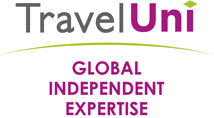This is the fourth in our series on Consultative Selling in the travel industry.
“Consultative Selling is personal selling in which you play the role of a consultant. You assist the buyer in identifying, or clarifying, their needs, and then suggest products that satisfy those needs.”
Sound complicated? It is not. You do it every day in your personal life. Think of the question “What shall we eat tonight”? The process is just as simple when talking to a customer.
ARE YOU LISTENING?
No, don’t pretend, are you really listening?
Let’s be honest do you do find yourself doing this? You listen to someone telling you about their day and you can’t wait for them to finish so that you can tell them about your day. Sure you do, admit it!
In those circumstances we are not truly listening. Quite often we are simply rehearsing in our heads what we want to say.
We all do it in all kinds of situations and of course people tend to do it while ‘selling’.
While working through the Discovery process [LINK Questions are the answer] with their prospective customer (lead), too many sales people are inside their own heads. They have often already decided what the lead should buy rather than listening to what they actually want.
The type of listening needed here, and in fact at every stage of the consultative selling process, is called ‘active listening’.
ACTIVE LISTENING
Active listening is a particular communication technique in which the listener provides the speaker (or writer) with feedback on what he or she understands has been communicated.
Just as you need to understand their preferred sense when discussing holidays so that you can speak their language, you also need to understand the meaning behind their words.
UNDERSTAND THE MEANING BEHIND THE WORDS
With active listening you are listening not only to the words used but also the way they are delivered. What is the emotion behind the words?
A relaxing holiday for you might be sitting on a beach for 8 hours whereas for the lead it might be a game of golf. Never assume you know what the lead means before you have asked clarifying questions. It is also important to check your understanding by repeating back what you believe you heard. Do not repeat everything of course: you will sound weird if you do!
Although you might think you can remember everything that is said, you are a busy person and the chances are you will forget some key points. If you ask permission, take notes and write down the main phrases that are used. It is a really positive signal to the customer that you take them seriously.
AN OUTCOME IN MIND
When working through the discovery process it is important that you have an outcome in mind. We suggest that by actively listening to your lead you are seeking to understand what would make this holiday (or business trip) successful for them; and of course for anyone travelling with them. At the end you will be able to summarise, in a few sentences, what the lead wants from their trip.
This will help you find the right arrangements for them. Also, just as importantly, by following this process you will demonstrate why they can trust you with their arrangements. We will explore this further in the next piece (Teach).
For more hints and tips to help you take your travel industry career to the next level make sure you follow us on Facebook.




